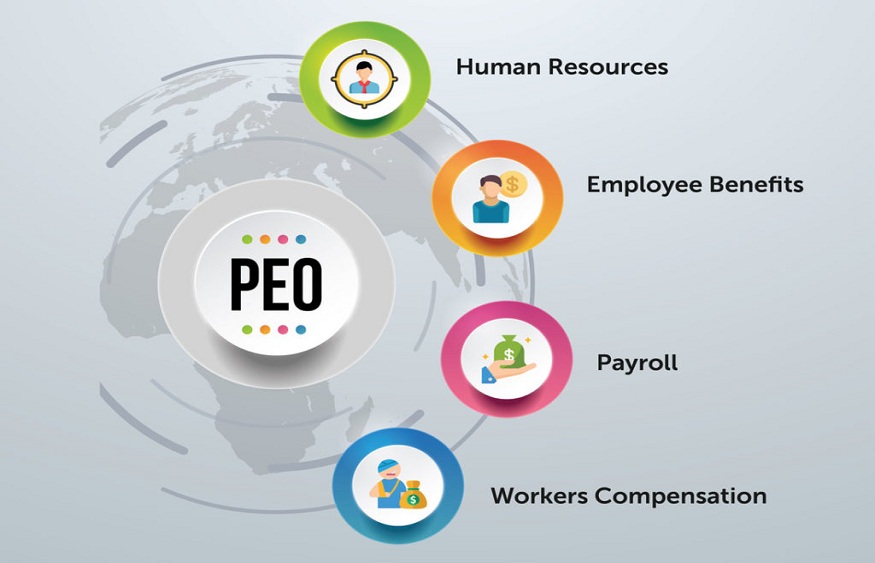Businesses may concentrate on their core capabilities as well as expansion by outsourcing non-essential HR tasks. Companies can do this by using a Professional Employer Organization (PEO), which handles several standard HR responsibilities. You’ll go over some of the main arguments in favour of companies working with PEO service organization in this post.
1. Compliance Support
Federal, state, as well as municipal employment rules and regulations are always changing. Regulations are continuously updated, new laws are always being proposed, and old laws are being altered. Legal knowledge along with committed employees is needed only to stay on top of all the developments. With limited resources, it may be difficult for small firms in particular to remain on top of the most recent compliance regulations.
One omission or error might lead to expensive fines as well as penalties. Payroll tax payments, completing different reports, keeping records, managing leave and benefits, guaranteeing workplace safety, combating discrimination, as well as other tasks are among the many things that businesses must correctly manage. Even a little rule violation might result in legal action and harm the company’s reputation.
Working together with a PEO simplifies this intricate web of legal requirements. For the benefit of their client firms, the PEO designates compliance professionals to keep an eye on developments across jurisdictions. They keep up with any changes to regulations that affect the relationship between employers along with employees. Subsequently, the PEO effortlessly integrates these modifications into the services they offer, including revamping training programs, benefits plans, as well as payroll procedures.
2. Scalable HR Solutions
Scalable HR solutions are among the main benefits PEOs give to companies. PEOs have the know-how and mechanisms in place to modify HR services in accordance with a company’s needs when it expands as well as hires more staff members or contracts, as well as when job numbers decline.
The PEO has a strong infrastructure and practices that enable smooth scalability since they manage the payroll, and benefits administration, as well as other HR operations for several customers at once. In the event that a company has to hire more workers because of growth goals, the PEO can easily and swiftly put such workers on payroll and set them up for health insurance. Likewise, the PEO can promptly terminate an employee’s employment using its digital systems if they depart the company for any reason, including project completion. This guarantees that changes in headcount won’t cause any disruptions to the company’s operations.
PEO services’ scalability is especially advantageous for expanding startups and businesses with varying personnel numbers. It removes the requirement for companies to develop or contract out distinct HR functions every time their workforce grows or shrinks. PEOs continue to have the freedom to scale up or down in response to the actual needs of the customer.
3. Reduced Costs
PEOs’ economies of scale allow them to save expenses for their client organizations in a number of ways. A PEO gains more purchasing power and negotiation strength when they take on additional clients and manage their HR needs collectively.
Payroll processing, compliance management, benefits procurement, and IT infrastructure are some of the main areas where PEOs save costs. PEOs are able to negotiate better rates on health insurance plans, along with retirement funds, as well as other benefit packages than any one small firm could since they are in charge of thousands of insured lives. They directly transfer these volume-based reductions to their customers.
Additionally, PEOs combine payroll duties for several businesses into centralized systems for processing payroll. The savings brought about by this automation and simplification of labour reduces the expenses associated with payroll tax filings, and payments per employee. Payroll outsourcing to a PEO saves money by removing the need to buy and maintain separate payroll systems and software.
4. Improved Benefits Offerings
Offering competitive employee benefits while operating on a tight budget and with limited resources is one of the biggest issues facing small businesses. Due to their economies of scale, large businesses are able to set up substantial benefit packages for their employees as well as negotiate reasonable group insurance coverage. It is challenging for a small business with a small staff to match these perks, though.
The workforces of many small-to-medium-sized clients are combined by a Professional Employer Organization to create a bigger risk pool. Possessing thousands of insured employees throughout its portfolio gives a PEO considerable negotiating power with benefit administrators and insurance companies. In order to obtain better pricing and conditions than any one small firm could hope for on its own, it bundles requirements from several clients.
Even workers of a 20-person business can obtain excellent health insurance alternatives at reasonable premium prices through the PEO. In addition to medical benefits, the plans frequently provide dental, along with vision, as well as other supplemental coverage. PEOs also assist with the setup of retirement savings programs, which enable staff members to save for the future and benefit from employer-matched contributions.
5. HR Expertise On-Demand
A company that collaborates with a PEO has access to a full staff of HR specialists. Professionals such as HR managers, benefits coordinators, and payroll administrators, as well as compliance officers, attorneys, and accountants are directly employed by PEOs.
In contrast to an internal HR department, where a company might only be able to employ one or two generalists, a PEO gives businesses access to extensive knowledge covering all facets of HR duties. PEO attorneys are accessible to offer advice if they have any issues concerning rules. Coordinators are available to help with questions about benefits. Payroll administrators also take care of any problems relating to tax or wage compliance.
PEO specialists maintain current by regularly attending training sessions covering the newest legislation pertaining to employment, HR innovations, as well as industry best practices. They stay up to date with and both federal as well as state regulatory developments. This is their specialized position as HR professionals.
Conclusion
Businesses may optimize expenses, improve compliance, update benefits, access HR knowledge, along with reduce risks, as well as concentrate on their primary goal by partnering with professional employer organization companies. They may promote organizational growth with scalable and affordable solutions by outsourcing typical HR functions. Reputable PEOs serve as strategic partners, managing people so management may focus on key company objectives.



